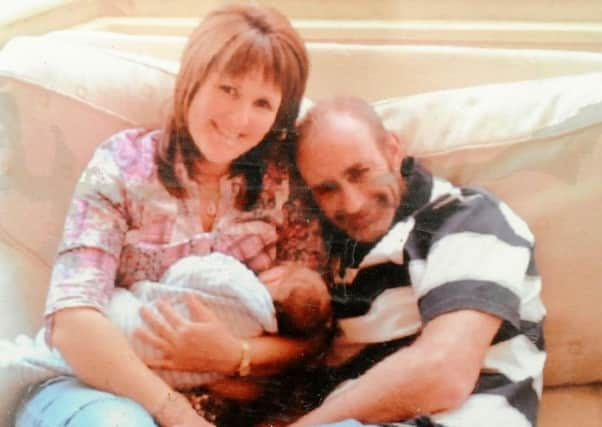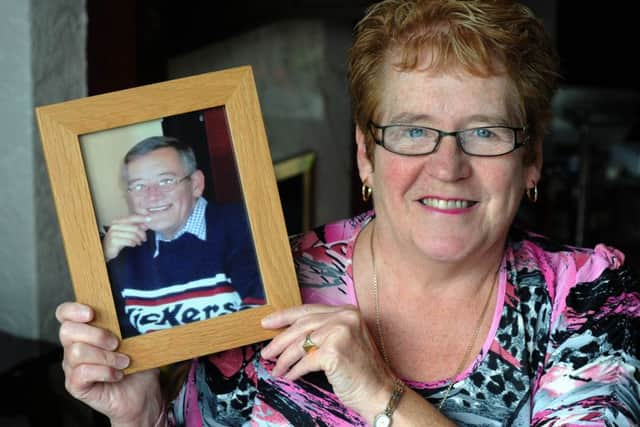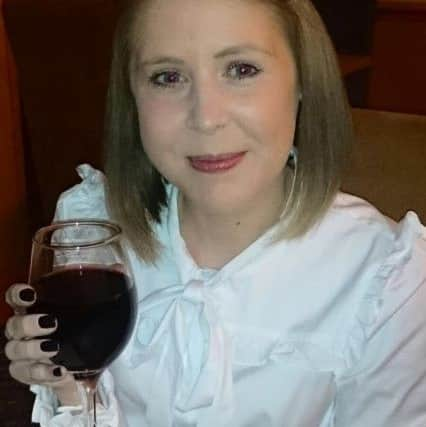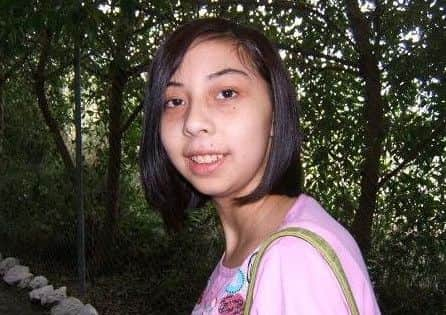‘Max and Keira’s Law’ was passed TODAY and will see people automatically signed up to the organ donors’ register


The legislation will come into effect next spring and will be called ‘Max and Keira’s Law’, after the boy who got a heart transplant – and nine-year-old Keira Ball, who gave it after she died in a car accident.
Under the current rules, people have to opt-in to become a donor and be listed on an NHS register. The government said presuming the dead’s consent could save up to 700 lives every year.
Advertisement
Hide AdAdvertisement
Hide AdIt comes three years after The Gazette and its sister title Lancashire Post launched the ‘Lancashire: Giving the gift of life’ campaign, which urged more people to become donors.


Debbie Johnson, who donated her 54-year-old husband Johne’s organs after he died suddenly from a brain haemorrhage in 2015, said: “Everybody is a winner because if you don’t want to do it, you don’t have to.”
The 47-year-old, of Heeley Road, St Annes, said the new law would be “fabulous” and said opt-out should have been brought in much earlier. She said: “I can’t believe it’s taken so long.”
She said nine people waiting for a transplant in Blackpool now “have more of a chance” and added: “Some people are not always aware of the amount of people waiting. I was not until I was in those circumstances.”
Advertisement
Hide AdAdvertisement
Hide AdThe NHS Blood and Transplant service yesterday said there are 51,547 people on the organ donors’ register in Blackpool, with nine people waiting for a transplant as of the end of January, fewer than five deceased donors in 2017/18, and nine donations – from the deceased – taking place in the same time frame.


Nationally, around 1,000 people die every year waiting for a transplant, and England has some of the lowest rates of consent for organ donation in western Europe, MPs were previously told.
An opt-out law was introduced in Wales in 2015 but failed to increase the number of donations, a study later found, though health secretary Vaughan Gething said it was “too early to know the true impact” of the change.
The new legislation here will mean families can still block donations if they wish, however.
Advertisement
Hide AdAdvertisement
Hide AdThe dad of a young resort woman who campaigned for donations after undergoing a double lung transplant in 2015 said his family was “really grateful” the operation meant they got “another two years” together.


Rosie Neath, 29, died in her dad Alan’s arms two years ago after complications due to cystic fibrosis – with her kidneys being donated to two separate people. Mr Neath said at the time: “Somebody somewhere lost a loved one so we could have Rosie for another two years, and we are really grateful for that. Now our tragedy means two more people will get the transplant they need.
“She was so passionate about getting people to sign up. She has always been on the donors’ list. It’s what she would have wanted.”
Following her operation, former Collegiate High School pupil Rosie became one of the faces of the NHS’s organ donation register, and she said: “I just felt really lucky and now I feel like I have a new lease of life.”
Advertisement
Hide AdAdvertisement
Hide AdRosie’s condition deteriorated to the point she needed a second transplant but, tragically, time ran out.
“There’s really such a waiting list,” Mr Neath said at the time. “That’s why we’ve got to get chasing to get everybody to sign up.”
The new legislation was put forward as a Private Members’ Bill by Coventry North West MP Geoffrey Robinson. It went through the House of Commons before going to the House of Lords, where no amendments were suggested and the report was received without debate. It underwent its third and final reading earlier, and will now be given Royal Assent and officially passed into law.
Following the death of little Keira, from Devon, her organs were used to save four lives, including Max Johnson, then also nine.
Advertisement
Hide AdAdvertisement
Hide AdAt the time of her fatal accident, he was in hospital in Newcastle suffering from heart failure – and was reportedly being kept alive by a mechanical pump.
He told the BBC: “To be honest, I was ready to die. I didn’t think I would make it. I hugged Mum and Dad thinking this was the last hug with my parents.
“I want everybody to talk to each other. If a member of your family died, would you let your organs go to waste and decay, or save a few people’s lives?”
The Gazette’s editor Gillian Parkinson said: “Our ‘Giving the gift of life’ campaign was successful in encouraging more people to become donors under the old system. However, the new legislation will mean that even more people who desperately need a transplant operation will be able to find a suitable donor, so we are delighted to see the opt-out rule come into law.”
Advertisement
Hide AdAdvertisement
Hide AdTwo years ago, The Gazette revealed how the resort’s organ donor register had grown by almost 10,000 in just five years, just months before health chiefs said nine patients had died “unnecessarily” waiting for transplants in Blackpool.
NHS bosses said a reluctance to talk about the issue – with death and dying still a taboo subject for many – meant families often did not know their loved one wanted to donate, and decided it would be safer to say no.
Help didn’t come in time for tragic Faith Ong, 14, who died from liver disease while waiting for a transplant.
The youngster, born in Newton with Scales, had two liver transplants before she was one, and battled her way through pneumonia.
Advertisement
Hide AdAdvertisement
Hide AdAfter years of relatively good health, she was told she needed another life-saving operation, but she died in 2009 before she could have it.
Her mum Travlin said at the time: “I don’t think she ever thought she was going to die, she believe she would get a transplant.
“She never gave up hope.”
John Forsythe, medical director of organ donation and transplantation for the NHS Blood and Transplant service, said: “It looks as if the new opt-out legislation in England will become law in the next few days.
“We will work closely with the government to ensure the introduction of the new opt-out approach is implemented successfully. Between now and then, we will carry out an information campaign to make sure everyone knows about the change in law, as well as the choice and options available to them, and that effective measures are in place to enable those who do not wish to donate to record their decision and to ensure that this decision is respected.
Advertisement
Hide AdAdvertisement
Hide Ad“Sadly around three people die every day in the UK in need of an organ while more than 1,000 families say no to organ donation every year. Even after the new law, our specialist nurses will still speak with a potential donor’s family. It remains vital that people continue to have conversations with their family, to remove any uncertainty and offer peace of mind for those who find themselves facing the tragic loss of a loved one.”
Jo Haythornthwaite, from St Annes, who lost her 58-year-old husband John, who donated his organs, to a brain haemorrhage in 2008, has campaigned to get people to sign up to the donors’ register, and is up for a national Unsung Hero Award on Friday for her tireless efforts.
She said: “I am very proud about the work we have done to promote organ donation across the Fylde coast and it is something that is very close my heart.”
Jo is also chairman of the Victoria Hospital’s organ donation committee, and told The Gazette previously: “We had never spoken about donating before but, to me, it was a light at the end of a tunnel because they [his kidneys, liver, corneas and heart valves] could be passed on to other people and his legacy lives on.
Advertisement
Hide AdAdvertisement
Hide Ad“He could help other people and that was easing my grief, and it was not the end, just moving on. That was amazing and I will never get over the feeling of knowing other people are benefitting.”
WHAT IS ORGAN DONATION?
An organ donation is when somebody agrees to replace a person’s own failing organs with one of their own. Most are given by deceased donors, though some organs, such as the kidney and liver, can be donated by the living.
People can given their kidneys, heart, liver, pancreas, small bowel, corneas, and body tissue.
On average, around three people die every day waiting for a donation.
DID THE WELSH OPT-OUT LAW WORK?
Advertisement
Hide AdAdvertisement
Hide AdTwo years after Wales adopted an opt-out system, there was no evidence it increased the rate of transplant operations, a study found.
In the 21 months after the new legislation came into effect in December 2015, there were 104 donors, while in the same period before there were 101, a report by the Welsh government found.
Last February, the NHS boss responsible for transplants, Claire Williment, said there was “no magic formula for organ donation”, and said: “It will always be making the most of every single opportunity, raising awareness, getting people to think about what they want to happen, and talk about what they want to happen.”
The country’s health secretary Vaughan Gething said it was “too early to know the true impact” and said the report suggested the reason for the lack of increase “may be because there have been fewer eligible donors over the short period since the change in law”.
Advertisement
Hide AdAdvertisement
Hide AdHe added: “It’s important to remember that it’s too early to know what the true impact of the change will be, but I’m confident we have started to create a culture where organ donation is openly discussed.”
FIGURES:
Blackpool
People on donors’ register (as of end of January) 51,547
Number of deceased donors (2017/18) Fewer than 5
Number of deceased donor transplants (2017/18) 9
Number on waiting list (as of end of January) 9
Fylde
People on donors’ register (as of end of January) 38,989
Number of deceased donors (2017/18) 5
Number of deceased donor transplants (2017/18) Fewer than 5
Number on waiting list (as of end of January) 9
Wyre
People on donors’ register (as of end of January) 43,759
Number of deceased donors (2017/18) Fewer than 5
Number of deceased donor transplants (2017/18) 11
Number on waiting list (as of end of January) 10